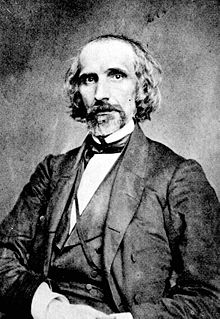James A. Seddon
| James Seddon | |
|---|---|
 |
|
| 4th Confederate States Secretary of War | |
|
In office November 21, 1862 – February 5, 1865 |
|
| President | Jefferson Davis |
| Preceded by | George Randolph |
| Succeeded by | John Breckinridge |
| Member of the U.S. House of Representatives from Virginia's 6th district |
|
|
In office March 4, 1849 – March 3, 1851 |
|
| Preceded by | John Botts |
| Succeeded by | John Caskie |
|
In office March 4, 1845 – March 3, 1847 |
|
| Preceded by | John Jones |
| Succeeded by | John Botts |
| Personal details | |
| Born |
July 13, 1815 Falmouth, Virginia |
| Died | August 19, 1880 (aged 65) Goochland County, Virginia |
| Political party | Democratic |
| Spouse(s) | Sarah Bruce |
| Alma mater | University of Virginia |
| Religion | Presbyterian |
James Alexander Seddon (July 13, 1815 – August 19, 1880) was an American lawyer and politician who served two terms as a Representative in the U.S. Congress, as a member of the Democratic Party. He was appointed Confederate States Secretary of War by Jefferson Davis during the American Civil War.
Born in Falmouth, Stafford County, Virginia, Seddon was a descendant of William Alexander, Earl of Stirling. Due to frail health, Seddon was educated primarily at home and became self-taught as a youth. At the age of twenty-one, he entered the law school of the University of Virginia. After graduation, Seddon settled in Richmond, where he established a successful law practice.
In 1845, he was nominated by the Democratic Party for Congress and was easily elected. Two years later, he was renominated, but declined due to platform differences with the party. In 1849, Seddon was reelected to Congress, serving from December 1849 until March 1851. Owing to poor health, he declined another nomination at the end of his term and retired to "Sabot Hill," his estate on the James River above Richmond.
Seddon attended the peace convention held in Washington, D.C., in 1861, which attempted to devise a means of preventing the impending civil war. Later in the same year, he attended the Provisional Confederate Congress. President Davis named him as the Secretary of War, a post he held until January 1, 1865, when he retired from public life to his country estate.
...
Wikipedia
